Comparing ChatGPT Search Performance with Traditional Google and Bing Search Results
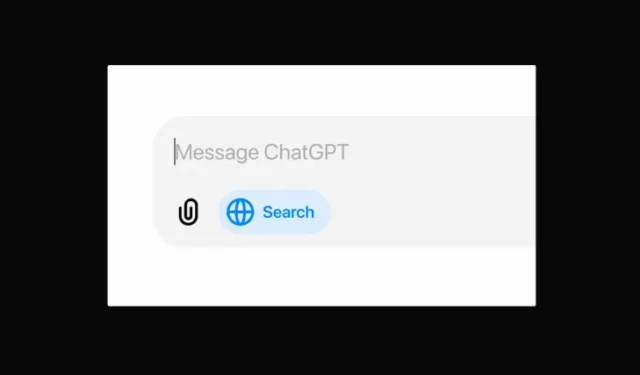
Essential Details
- ChatGPT Search offers context-aware, real-time web results along with sources and citations for enhanced validation.
- With the introduction of ChatGPT Search, OpenAI is positioning itself as a competitor to established search engines such as Google and Bing, but as a new entrant, it faces significant challenges before it can rival these giants.
- This functionality is accessible to ChatGPT Plus and Team subscribers, as well as those on the SearchGPT waitlist, across mobile, desktop applications, and the web platform.
The long-awaited web search capability of ChatGPT is now live. Formerly named SearchGPT, ChatGPT Search effectively transforms the AI chatbot into a powerful search engine, delivering real-time web results.
ChatGPT Search (formerly SearchGPT) has launched! What’s new?
OpenAI initially introduced SearchGPT in July as a limited prototype. Now, with the testing phase complete, its most successful features have been integrated into ChatGPT, leading to the rebranding to ChatGPT Search. Here’s a look at the latest enhancements.
Automatic Search Activation or Dedicated Search Icon
With ChatGPT Search, users can conduct web searches through the chatbot in a fluid conversational style. On the ChatGPT web interface, search functionality is triggered automatically without requiring a specific button to start it. Our tests suggest it performs remarkably well at interpreting context and initiating searches without explicit prompts.
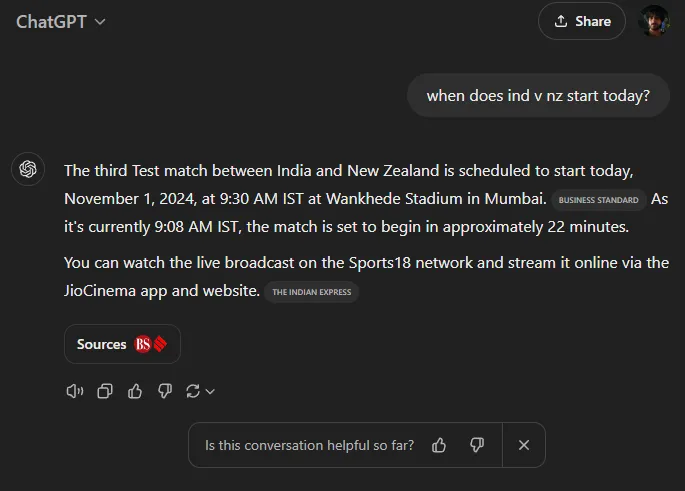
For mobile users, a distinct Search icon is available to click while interacting with ChatGPT. However, if you choose not to click it and your prompt demands a web search, it will still launch automatically.
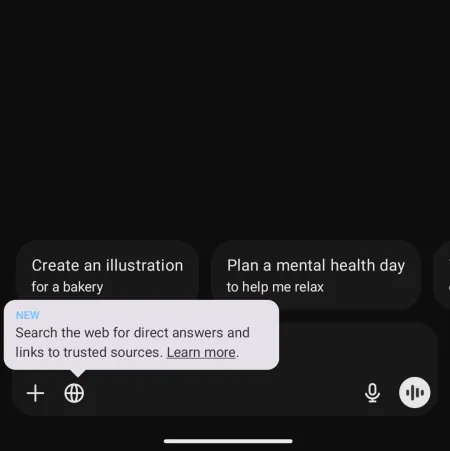
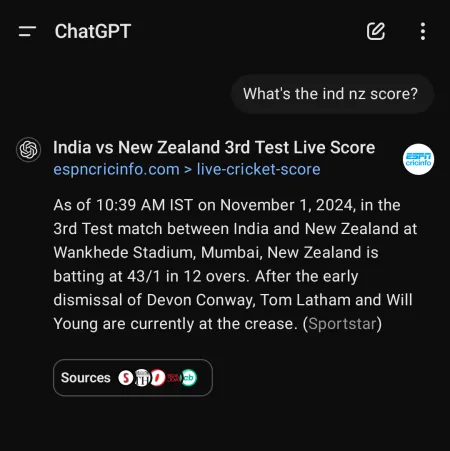
The search process is impressively swift, extracting information from a variety of reliable sources. The AI synthesizes the most pertinent content for your inquiry, presenting it cohesively rather than requiring you to sift through numerous links.
Real-Time Updates (down to the minute)
ChatGPT Search ensures that the information is updated with incredible precision, making it ideal for real-time topics like news, weather, sports, and stock market data.
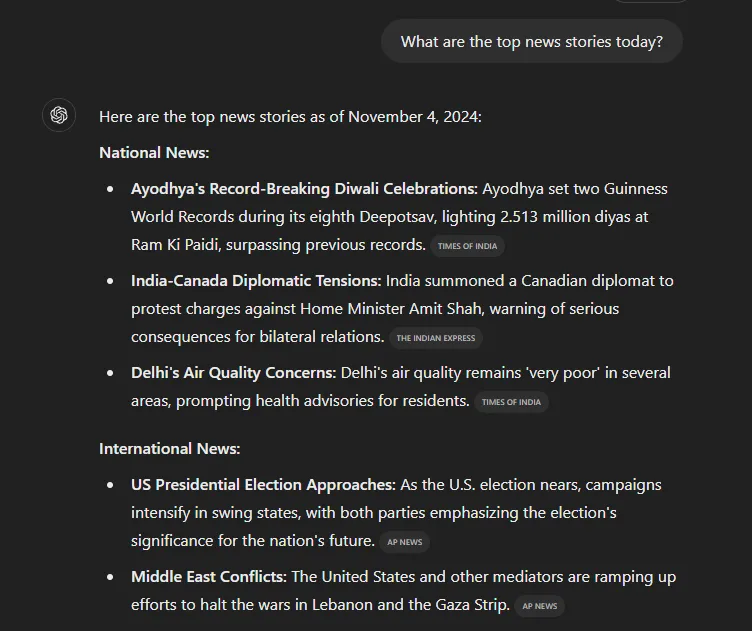
OpenAI has stated that ChatGPT utilizes multiple sources, including Bing, to gather updated content, thus ensuring access to the latest information.
Verification through Sources and Citations
To assist with information verification, ChatGPT cites its sources next to important claims and provides a ‘Sources’ button at the bottom where users can click to explore the referenced websites.
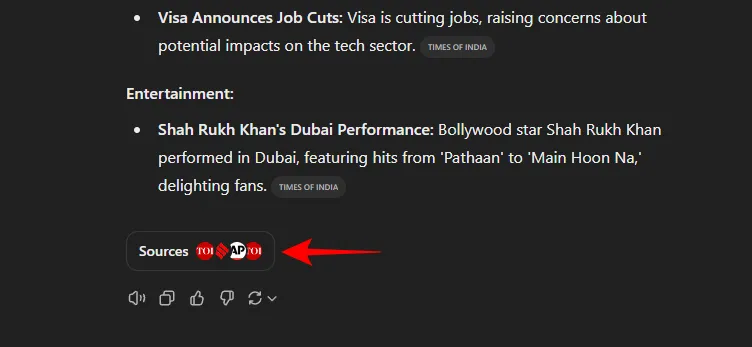
For every query, ChatGPT generates various citations, potentially enhancing traffic for those websites.
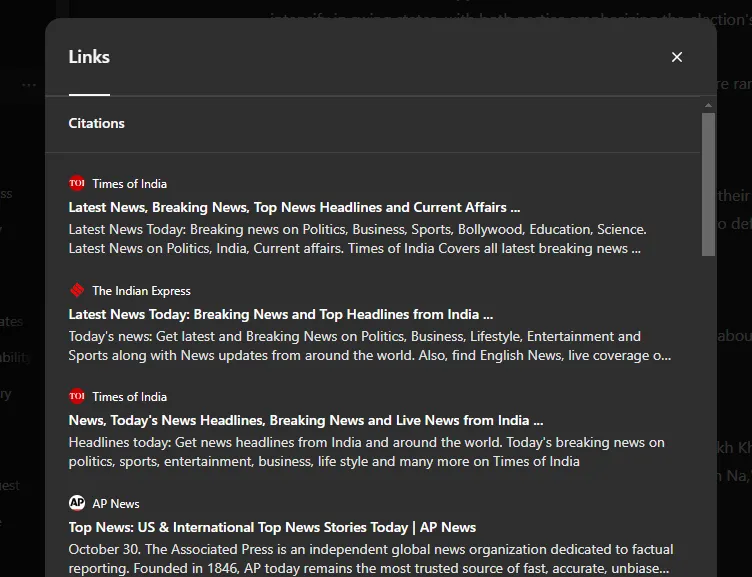
If multiple results originate from a single prominent source, this will be highlighted at the top, and additional citations are accessible via the sidebar in the desktop app.
ChatGPT Search Chrome Extension
In addition to the web client and mobile applications, ChatGPT Search can also be accessed as a Chrome extension. This extension allows you to set ChatGPT as your default search engine, eliminating the need to visit the ChatGPT website each time you want to perform a search. Simply enter your query in the address bar and press Enter.
How does ChatGPT Search stack against traditional search engines?
Despite its impressive features, ChatGPT Search is not yet a full substitute for Google or Bing. While it boasts notable advantages, it still has a considerable journey ahead to surpass traditional search methods. Below are some considerations.
Text-Only Responses
When utilizing ChatGPT Search, the outputs are delivered as a continuous block of text, lacking images or video content to enrich the search experience. You won’t receive a list of prioritized results with associated metadata for easy navigation.
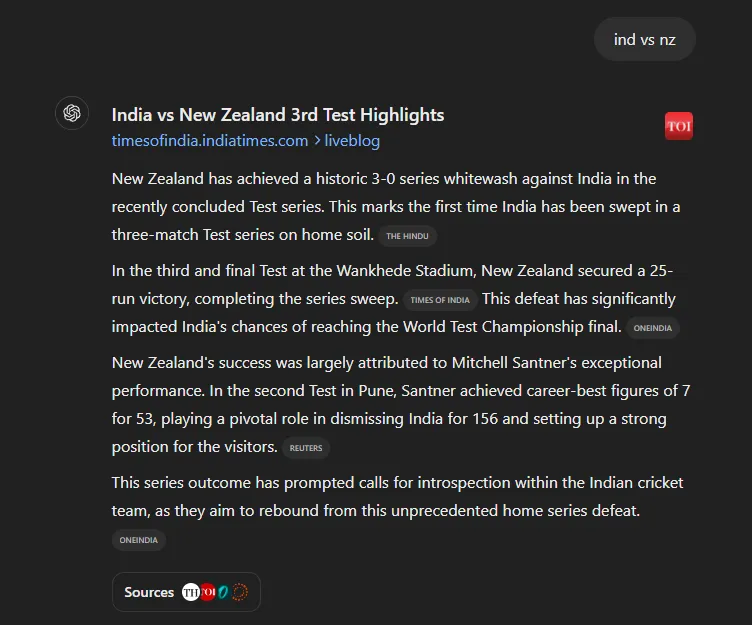
While ChatGPT can effectively synthesize and present findings in a manageable format—potentially saving time—Google already implements similar features with highlighted snippets and AI-generated summaries.
As a chatbot, ChatGPT’s current delivery format constrains information presentation. In contrast, Google enables searches across various categories, providing dynamic and responsive updates and suggesting related content based on user behavior.
Enhanced Contextual Understanding
ChatGPT, leveraging its AI capabilities, excels in grasping the context behind your queries, delivering tailored responses. This characteristic makes it particularly effective for detailed research that encompasses numerous variables—an area where traditional search engines may fall short.
Google lacks this level of contextual understanding unless utilizing its Gemini chatbot, which operates separately from regular search functionalities.
Currently Ad-Free
Right now, ChatGPT operates without advertisements, which, while not particularly beneficial for retail searches, provides a clean search experience devoid of interference from ads. Nonetheless, it remains uncertain whether this will continue indefinitely or if OpenAI may later introduce ads or alternative monetization methods.
This is not to downplay the prevalence of sponsored content on Google, which typically surfaces during product searches, requiring users to overlook unwanted ads when seeking general information.
Potential Content Errors and Limitations
If you value unrestricted search and thought, ChatGPT’s moderation and content filters may inhibit access to subjective results. Although it does provide responses to queries, it often pairs them with unnecessary commentary discouraging certain inquiries.
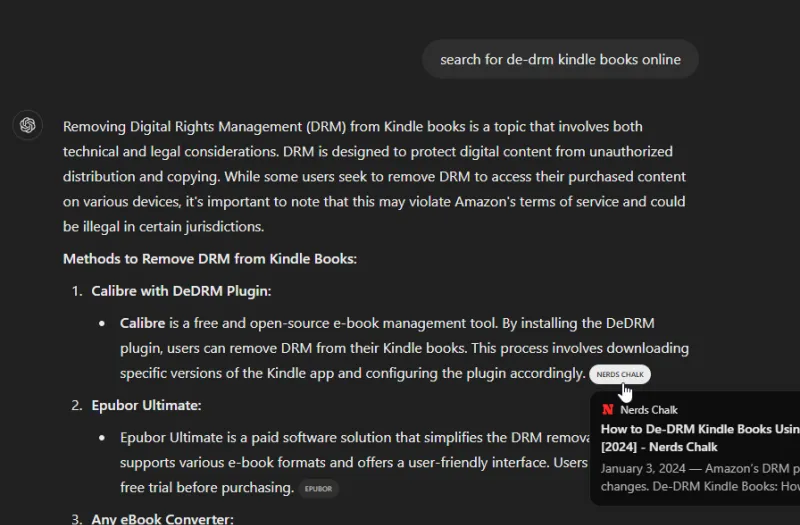
Additionally, users have reported instances of inaccurate information and erroneous links during product-related queries. While the frequency of inaccuracies has significantly declined, there’s still considerable room for improvement.
Google: A Habit and a Verb
With the launch of ChatGPT Search, OpenAI has amplified the competitive landscape. Nonetheless, Google’s dominance as the go-to search engine for countless users around the globe is unlikely to vanish soon. Decades of habit forming make it challenging for users to transition from habitual googling to utilizing ChatGPT. However, OpenAI’s innovative features may grant ChatGPT a fighting chance to capture some of Google’s market presence.
Who Can Use ChatGPT Search
ChatGPT Search is accessible to ChatGPT Plus and Team members, along with individuals on the SearchGPT waitlist. OpenAI has announced that “Enterprise and Edu users will gain access in the coming weeks” and that “Free users will have access in the months ahead.”
You can explore ChatGPT Search through the ChatGPT web platform and its mobile and desktop applications.
Leave a Reply